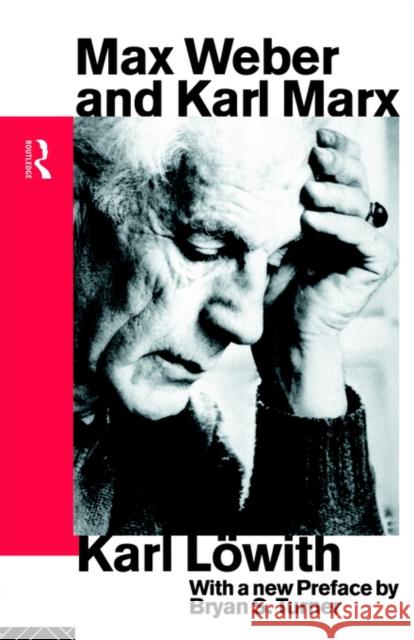Max Weber and Karl Marx » książka
Max Weber and Karl Marx
ISBN-13: 9780415093811 / Angielski / Miękka / 1993 / 144 str.
Karl Lowith was the son of a Munich artist and studied philosophy and biology in Munich, Freiburg and Marburg. He began his teaching career in 1928 as Privatdozent in Marburg, working under Heidegger, but was forced to leave in 1934. After two years in Rome, he held a chair at Tohku University, Sendai, Japan from 1936-1941. In 1941, he moved to the Theological Seminary at Hartford, Connecticut and, in 1949, to the New School for Social Research, New York. In 1952 he returned to Germany as Professor of Philosophy at the University of Heidelberg where he remained until his retirement. He died in 1973. His best known work, From Hegel to Nietzsche, was published in Zurich in 1941 and in English translation in 1964. In Max Weber and Karl Marx, Lowith, whose philosophical approach was a product of Heidegger's existentialism, showed how there was a convergence towards a common life philosophy. Lowith's analysis of the philosophical anthropology of these two major social scientists shows that much of the ideological dispute between Marxism and sociology has been the result of mutual misunderstanding.











